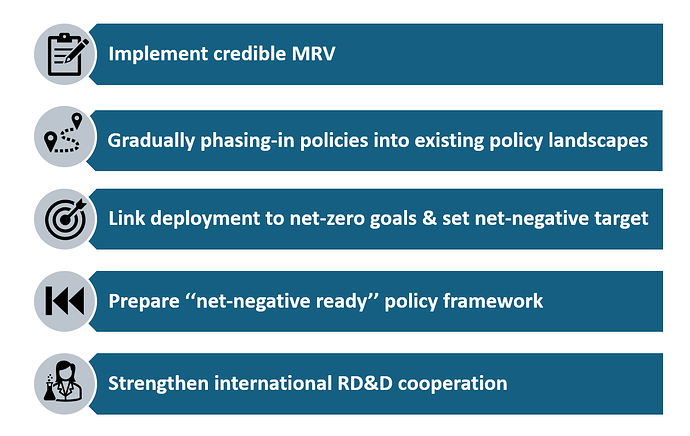Exploring G7 leadership in carbon dioxide removal policy: Towards new forms of cooperation
Carbon dioxide removal (CDR) policy is developing rapidly but remains fragmented. G7 members, who are expected to take the lead in CDR deployment, could use the G7 forum to coordinate new policy initiatives and foster new cooperation. Leveraging demand through joint CDR procurement pledges or common net-negative emissions targets for the second half of the century are two concrete next steps that the G7 could work on.
Addressing the issue at the G7 level will not only help leverage the already existing policy entrepreneurship of some G7 members, but will also help prepare for the distributional conflicts associated with achieving net-zero and net-negative emissions, both domestically and internationally.
Following up on the publication of the Comment “Five principles for robust carbon dioxide removal policy in the G7”, this webinar aims to bring together the perspectives from different countries to explore next steps in a new and presumably challenging political environment for CDR policy.
Join us for a discussion on the role of the G7 in shaping the future of CDR policy and the latest developments in pioneering countries.
Please register here.
Agenda
Welcome
- Oliver Geden, SWP & IPCC WG III Vice-Chair
Input
Comments and country perspectives
- Jane Flegal, Stripe
- Asser Rasmussen Berling, Danish Ministry of Climate, Energy, and Utilities
- Fabien Ramos, European Commission, DG Clima
Q&A
Chair: Sonja Thielges, SWP
2 Likes
UPTAKE Webinar on Exploring G7 leadership in carbon dioxide removal policy: Towards new forms of cooperation
December 12th, 16-17 CET | organized by SWP | ~100 participants
Intro:
Oliver Geden in his role Chair of the Research Cluster Climate Policy and Politics at the German Institute for International and Security Affairs and Vice-Chair of IPCC WGIII introduced the topic of CDR as a key element of mitigation strategies towards net-zero and net-negative thereafter. He also provided a brief overview of the next steps on the State of Carbon Dioxide Removal report.
Felix Schenuit presented the key take-aways from the paper “5 Principles for Robust CDR policy in the G7”, published in OneEarth.
. In addition, he presented 4 recommendations for advancing CDR at the G7 to stimulate discussion among the panellists.
-
- Agree on joint procurement pledges to leverage domestic initiatives
-
- Raise the issue of net-negative emissions in the 2nd half of the century in G7 target language
-
- Strategic division of labour in research funding and new joint research initiatives
-
- Invest in broadening the CDR coalition (Mission Innovation, G20, …)
Panelists:
-
List item Ed Whittingham (Stripe Climate Fellow) highlighted the recent developments in Canadian CDR policy, including the procurement regime and possible new language on CDR targets. He also highlighted the role the Canadian G7 Presidency could play in putting the issue on the agenda.
-
Asser Rasmussen Berlin (Danish Ministry of Climate, Energy and Utilities) presented how CDR is being discussed in Denmark as one of the pioneering countries in the European Union, including new incentive schemes to create a market for CDR and the first quantified net negative emissions. He also highlighted the Danish Presidency of the EU Council in the second half of 2025.
-
Rabien Ramos (DG Clima, European Commission) provided an insight into recent developments in EU CDR policy, including the framework for certification of carbon sequestration and carbon farming, discussions on the 2040 target, and new instruments to support early removal in the European Commission’s new mandate.
In the Q&A session following the presentations, participants and panelists discussed different sources of funding for CDR, early market commitments as a possible form of cooperation for the G7, and the need to integrate CDR into different compliance regimes.
2 Likes
